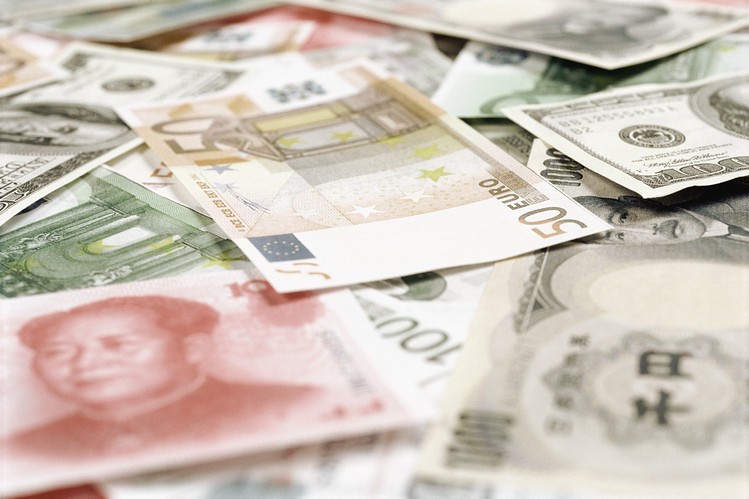Why Do Currency Wars Start
Post on: 11 Июль, 2015 No Comment

Because when one country plays with its exchange rate, everyone else has to.
Responding to Japans unilateral intervention to weaken the yen, followed by similar moves from Colombia, Thailand, South Korea, and other countries, Brazilian Finance Minister Guido Mantega recently declared that the world is in the midst of an international currency war. In an effort to recover from the global economic crisis, these countries are attempting to stimulate their exports by making their currencies cheaper. These efforts add to the longstanding tensions between Western nations and China over the latters monetary policy, which many say keeps the yuan artificially low. Could things be getting out of hand?
IMF Managing Director Dominique Strauss-Kahn, among others, has also warned against countries using currencies as policy weapons. French Finance Minister Christine Lagarde has urged countries to talk about peace and not war. But U.S. Treasury Secretary Timothy Geithner has denied that theres a currency war going on and says theres no risk of one breaking out.
So what exactly is a currency war and how do we know when were in one, anyway?
We are when we say we are. A currency war is more of a political than an economic condition. Governments frequently intervene in their currency markets, increasing the money supply to stimulate trade and reduce unemployment, or decreasing the supply to combat inflation. The problem is that in an interlinked global economy, currencies dont rise or fall in a vacuum. When China keeps the yuan artificially low versus the U.S. dollar, it keeps the cost of Chinese goods low in the United States, contributing to a trade imbalance. That provides a steep incentive for the United States to retaliate by lowering its currency as well. Of course, becuase two countries can only have one exchange rate, this race to the bottom isnt likely to benefit either party.
When many countries devalue their currencies at the same time in an effort to make their exports more competitive, it forces other countries Brazil for instance to join in to prevent their currencies from rising. Countries often see currency wars as a zero-sum game one wins and the others lose. But the widespread devaluation can have a devastating effect on all. Unstable exchange rates can deter international investment. slowing the pace of global economic recovery. And of course, currency wars can have secondary political effects. When countries are fighting over currency, theyre less likely to agree to bilateral trade. Additionally, currency pressures could make China less likely to go along with U.S. efforts to contain Iran or North Korea.
Unlike real wars, currency wars dont have defined start dates, but they can be ended with something like peace treaties. In 1936, Britain, France, the United States signed the Tripartite Agreement to address the currency imbalances that had resulted from Britain and the United States leaving the gold standard in the midst of the Great Depression. On the eve of World War II, with an even greater enemy on the horizon, the three countries agreed to refrain from devaluing their currencies.
In 1985, when Japan not China was the rising Asian economic power, the governments of Britain, France, Japan, the United States, West Germany signed the Plaza Accord. under which the dollar would be allowed to depreciate against the yen.
Some are now calling for a new international agreement to stabilize the current round of depreciation. But, obviously, the world economy has changed quite a bit in the last 25 years. The growing power of emerging economies such as Brazil, China, India, and South Korea make it much harder for a few finance ministers in a hotel room to hammer out a deal. Moreover, previous efforts at stabilizing global exchange rates have caused the parties involved to lose faith when theyre ultimately undermined by domestic policies.
So as with real wars, declaring one is often far easier than ending it.
Thanks to Barry Eichengreen, professor of economics and political science at the University of California, Berkeley.
Share +
Twitter Facebook Google + Reddit














